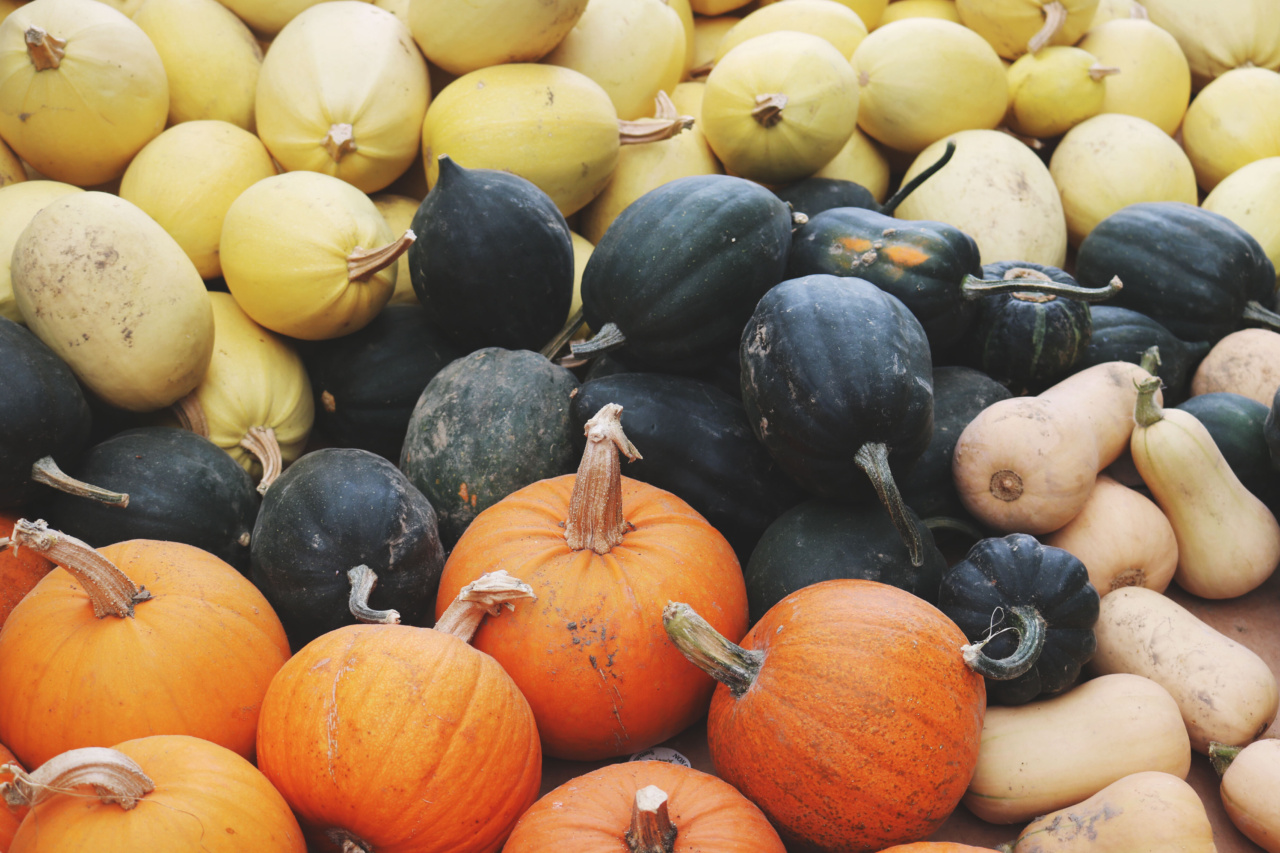As the leaves change colors and the weather starts to cool down, it’s time to embrace the abundance of fall vegetables. Not only do these veggies add beautiful colors and flavors to our meals, but they also come with a range of health benefits.
Let’s take a closer look at five fall vegetables and why you should incorporate them into your diet:.
1. Pumpkin
When we think of fall, pumpkins are often the first vegetable that comes to mind. Aside from being a staple in Halloween decorations, pumpkins offer numerous health benefits.
They are packed with fiber, which aids digestion and promotes a feeling of fullness. Pumpkins are also an excellent source of beta-carotene, a powerful antioxidant that supports eye health and boosts the immune system. So whether you use it in soups, pies, or roasted dishes, don’t forget to reap the health benefits of pumpkin.
2. Sweet Potatoes
Another popular fall vegetable is the sweet potato. These root vegetables are not only delicious but also incredibly nutritious. Sweet potatoes are an excellent source of vitamins A and C, which help strengthen the immune system and promote healthy skin.
They also offer a good amount of fiber and are low in calories, making them a great choice for weight management. Incorporate sweet potatoes into your meals by baking them, using them in stews, or making sweet potato fries for a healthy and satisfying treat.
3. Brussels Sprouts
Brussels sprouts may have a bad reputation among picky eaters, but they are a true powerhouse when it comes to nutrition.
These miniature-sized cabbage-like vegetables are rich in vitamins K and C, which are essential for blood clotting and promoting collagen production. They are also packed with fiber, antioxidants, and anti-inflammatory compounds, making them beneficial for heart health and reducing the risk of chronic diseases.
Roast them in the oven with some olive oil and seasonings, and you’ll have a delicious and nutritious side dish for your fall meals.
4. Butternut Squash
Butternut squash is another fall favorite that is worth including in your diet. This versatile vegetable not only adds a rich, nutty flavor to your dishes but also provides an array of health benefits.
Butternut squash is an excellent source of vitamin A, which is important for immune function and eye health. It is also packed with fiber, potassium, and magnesium, all of which contribute to heart health and proper digestion. Whether you roast it, make a creamy soup, or incorporate it into pasta dishes, butternut squash is a must-have fall vegetable.
5. Kale
Kale has gained popularity in recent years as a superfood, and for a good reason. This leafy green vegetable is packed with vitamins A, C, and K, as well as calcium and antioxidants.
It is a nutrient-dense vegetable that offers numerous health benefits, including improved eye health, strengthened bones, and reduced risk of chronic diseases. Whether you use it in salads, smoothies, or sauté it as a side dish, kale is a fantastic addition to your fall menu.
Incorporate Fall Vegetables into Your Diet for Optimal Health
Now that you know the health benefits of these fall vegetables, it’s time to get creative in the kitchen and incorporate them into your diet.
Whether you enjoy them roasted, pureed, or added to hearty soups, these vegetables can provide the nutrients your body needs during the fall season. So head to your local farmer’s market or grocery store and stock up on pumpkins, sweet potatoes, Brussels sprouts, butternut squash, and kale. Your taste buds and your health will thank you.






























